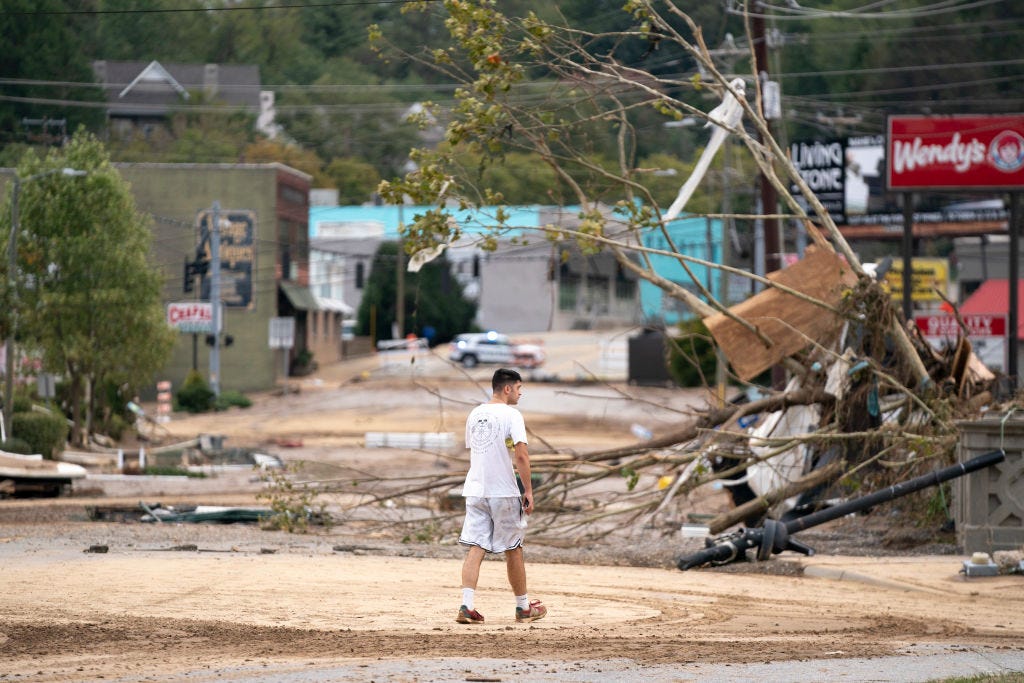This week, as I texted with my sister in Georgia about the loss of her power at her home and the powerlessness she felt in the face of the storm, I thought about who is saved, who is spoken for, and who is spoken about.
Climate change and powerlessness
Four years ago, in the beginning of October, I had just gotten power back after not having it for nearl…


